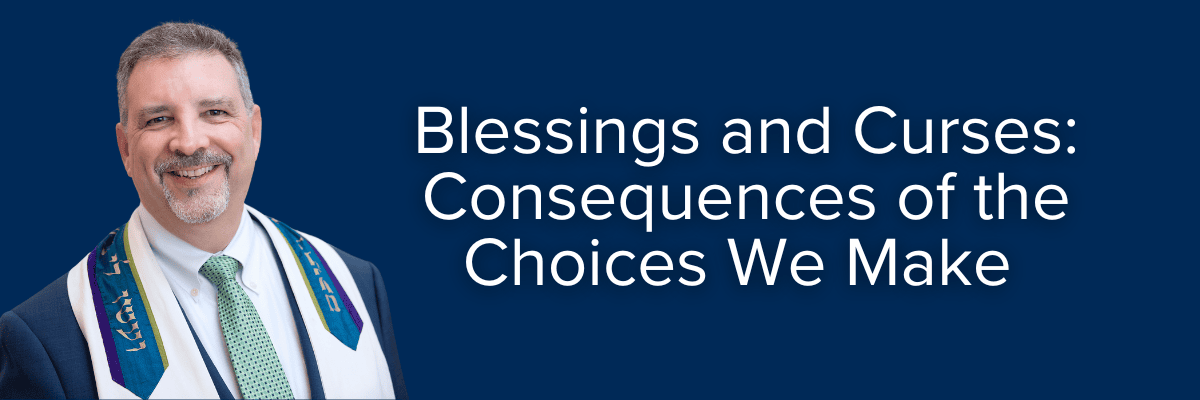Shabbat Shalom. We are getting closer to the High Holy Day season and the Torah portion for this week is starting to prepare us to think about our lives. Parashat Ki Tavo includes a dramatic litany of blessings and curses that will come upon the Israelites depending on whether they follow God’s commandments. On the surface, this portion might feel starkly black and white—obedience leads to prosperity, disobedience to suffering. But as we look more deeply, Ki Tavo offers us a timeless message about human growth, self-awareness, and the spiritual opportunity embedded in both joy and hardship.
The Torah does not present blessings and curses simply as rewards or punishments. Rather, they are consequences of the choices we make, and reflections of the kind of world we shape through our actions. Life is not always within our control, but how we respond to its ups and downs is. The reality is that we all experience both blessing and curse in our lives—successes and failures, joy and grief, clarity and confusion. Ki Tavo teaches us to hold both with honesty and courage, and to use each as a path toward becoming our best selves.
This message could not be more timely. We are now entering the final stretch before Rosh Hashanah and Yom Kippur—the High Holy Days that ask us to take a clear, compassionate, and critical look at our lives. This Saturday night, with the Selichot service, we begin the process of spiritual preparation. Selichot is more than a ritual; it’s an invitation. An invitation to examine our deeds, to ask for forgiveness from God and others, and to reconnect with who we truly want to be.
The blessings and curses of Ki Tavo align with the essence of this season. They remind us that life is not static, and neither are we. We are capable of change. We are called to grow. Just as the Israelites are asked to listen, to choose, and to walk in the ways of holiness, so too are we invited to take responsibility for our choices. This is not about shame or fear—it’s about empowerment. When we own our mistakes and recognize our blessings, we reclaim the power to write the next chapter differently.
This Shabbat, as we read Ki Tavo and prepare for Selichot, let’s reflect on where we have encountered blessings in the past year. Where have we felt the weight of curses—loss, regret, pain? What have we learned from both? And how can we use that learning to return—to do teshuvah—and become more intentional, more compassionate, more whole?
The Torah doesn’t promise a life free from hardship. But it does promise that we can find meaning in every part of our journey. As we enter the season of forgiveness and renewal, may we carry the lessons of Ki Tavo in our hearts: to see clearly, to choose wisely, and to grow courageously from all that life gives us—blessing and curse alike.
Shabbat Shalom,
Cantor Michael Shochet


